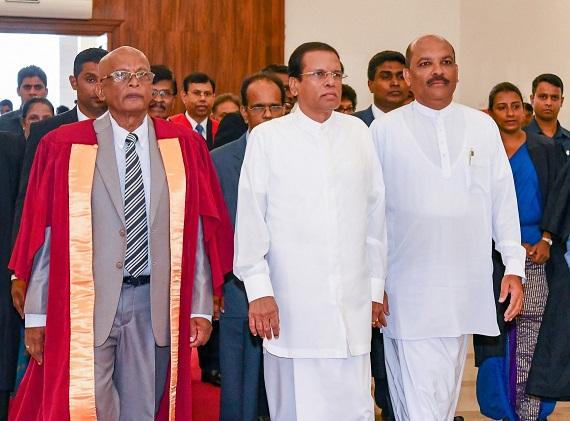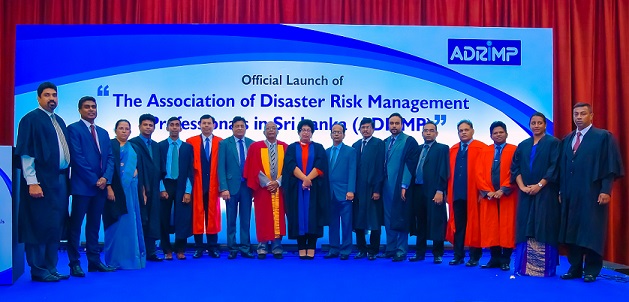Supporting initiation of the Association for Disaster Risk Management Professionals (ADRiMP)
As part of the Nature Solutions towards improving resilience and sustainability of vulnerable groups, IUCN is in the process of promoting Ecosystem Based Disaster Risk Reduction (Eco-DRR). Currently there are three on-going projects supporting Eco-DRR namely, the ChildFund supported working with communities in four districts (Batticaloa, Nuwaraeliya, Mullaitivu and Puttalam); project funded by International Labour Organization (ILO) to develop two pilot sites affected by floods and landslides in Ratnapura and Kalutara districts to minimize risks; and UNICEF funded risk assessment on Climate Impacts on Children and Women.

Inauguration of ADRiMP
Photo: Inauguration of ADRiMP
The material IUCN develops to promote Eco-DRR are based on Sri Lanka Disaster Context and enriched by the work of UN Environment and IUCN supported “Partnership for Ecosystem Based Disaster Risk Reduction (PEDRR) - http://pedrr.org/.” Eco-DRR combines Nature Solutions and Climate Adaptation.
 ADRiMP Members
Photo: ADRiMP
ADRiMP Members
Photo: ADRiMP
While mainstreaming Eco-DRR in the Sri Lankan system, IUCN also supported the initiation of the Association for Disaster Risk Management Professionals in Sri Lanka (ADRiMP) as a vehicle to promote risk reduction. ADRiMP is an assembly of professionals representing varied disciplines to nurture a culture of safety in Sri Lanka from the impact of disasters and climate change. ADRIMP was inaugurated on 27 August 2018 with the participation of H.E. the President.
The Eco-DRR materials will strengthen the ADRiMP trainings. Sri Lanka is one of the countries severely affected by climate induced disasters such as droughts, floods and landslides. The Eco-DRR principles will be an excellent investment towards using nature solutions to reduce disaster risks and improve the understanding of different groups on the value of conserving and sustainable use of ecosystems.
